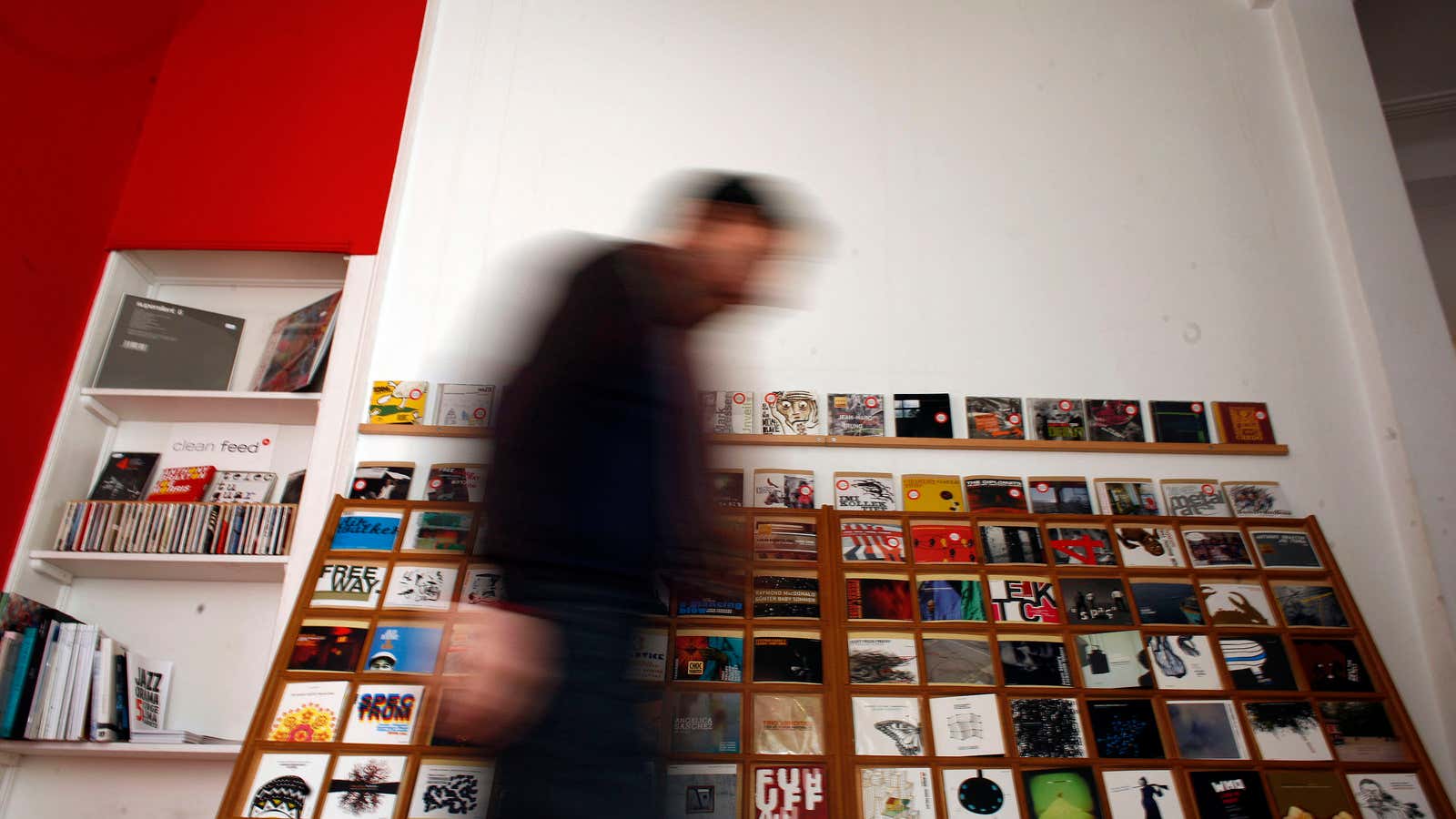On Telegraph Avenue in Berkeley, California—a long, jutting street renowned for its bohemian history and activist counterculture—sits an auditory mecca. For 26 years, independent record-store chain Amoeba Music has operated its flagship establishment there.
Now, the revered music shop is also a marijuana dispensary.
Late last month, Amoeba’s management proudly announced it secured a medical marijuana license and will convert its jazz section into the Berkeley Compassionate Care Collective, a pot dispensary expected to open in the coming year after it’s lined up the necessary permits.
While it might seem like Amoeba is catering to its customers’ tastes, offering marijuana is actually a way to help keep its doors open in the age of digital streaming. The latest figures from the International Federation of the Phonographic Industry show that digital platforms accounted for 45% of music’s global revenue in 2015, surpassing physical sales (39%) for the first time. Amoeba cofounder Marc Weinstein admitted in 2015 that his store was earning just half of what it did in 2008.
Pot, oddly enough, could be Amoeba’s saving grace. As industry analysts have noted, weed and music have long been a winning combination. Music strategist Brian Zisk told a local newspaper last year that “people are already getting stoned and ending up at Amoeba… they’re [now] going to spend four times as much.” While adding marijuana sales alone may be a good business move, having an in-house dispensary may also encourage customers to browse the store’s CD and vinyl aisles and splurge on a nostalgic trinket or two.
Weinstein and his cofounder David Prinz say they expect the dispensary to be a lucrative business, which is good news as its Los Angeles location appears to be buckling under financial pressure.
“We need supplemental income. That’s the real truth,” Prinz said, rather bluntly. “This helps keep us open and enables us to do some amazing shit.”
